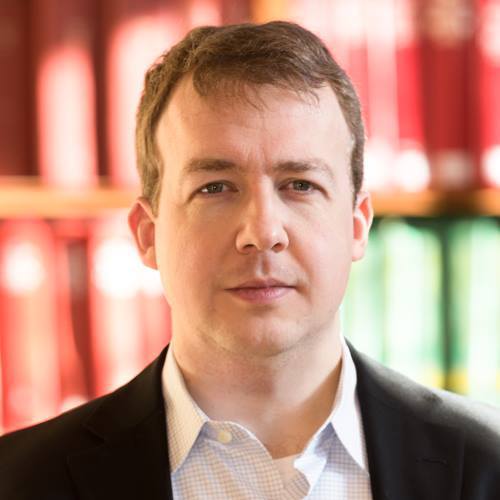
Photo of David Steketee
A major court victory by the Freedom From Religion Foundation will save New Jersey taxpayers many millions of dollars by terminating an unconstitutional boondoggle.
The New Jersey Supreme Court, in a 7-0 decision today, upheld the state Constitution’s ban against taxpayer funds being used for “building or repairing any church or churches.” In Freedom From Religion Foundation v. Morris County, FFRF and member David Steketee filed suit in late 2015 against the county, challenging public grants of millions of tax dollars to repair or maintain churches. The state high court’s ruling corrected a lower court’s shocking refusal to apply the state Constitution’s plain command.
FFRF and Steketee originally protested more than $5.5 million in funding to churches since 2012 by the Historic Preservation Trust Fund. The lawsuit specifically challenged $1.04 million in allotments to Presbyterian Church in Morristown, which, in the words of the church, would allow “continued use by our congregation for worship services,” as well as disbursements to St. Peter’s Episcopal Church to ensure “continued safe public access to the church for worship.” All of the churches that received the grants have active congregations.
FFRF contended the grants violate the unambiguous command of Article I, Paragraph 3 of the New Jersey Constitution that guarantees: “nor shall any person be obliged to pay tithes, taxes, or other rates for building or repairing any church or churches, place or places of worship, or for the maintenance of any minister or ministry, contrary to what he believes to be right.” This taxpayer protection predates the creation of the United States and was seen by Thomas Jefferson and other Founders as an essential guarantee to prevent the government from establishing religion and forcing citizens to support churches or religions in which they disbelieve.
The lower court ruling claimed an unprecedented exception to this admirably clear command, holding that Morris County was justified in ignoring this constitutional mandate because the funds were part of a historic preservation program. Fortunately, the state’s top court has corrected this mistake, overruling the trial court and holding that the New Jersey Constitution means exactly what it says.
“We find that the plain language of the Religious Aid Clause bars the use of taxpayer funds to repair and restore churches, and that Morris County’s program ran afoul of that longstanding provision,” the Supreme Court states. It agrees with FFRF’s central contention that not being taxed to support a church is a central issue of religious freedom of conscience.
FFRF is elated at the constitutionally correct decision.
“It’s shocking that it took a trip to the New Jersey Supreme Court to enforce such a plain constitutional command,” says FFRF Co-President Annie Laurie Gaylor. “New Jersey taxpayers can breathe a sigh of relief that their constitutional religious liberty rights have been protected.”
FFRF cannot emphasize enough the significance of the N.J. Supreme Court decision.
“This is not just a win for secular citizens, but for every New Jersey taxpayer,” explains FFRF constitutional attorney Andrew L. Seidel. “Governments in New Jersey cannot force Muslims to bankroll temples and yeshivas, compel Jews to subsidize Christian churches and Catholic schools, force Christians to fund mosques and madrassas or nonbelievers to support any religion. It’s a win for all.”
The Freedom From Religion Foundation is a nationwide nonprofit organization dedicated to the constitutional separation of state and church, with more than 33,000 members across the country, including 500-plus in New Jersey.
FFRF extends its gratitude to plaintiff David Steketee, who has vigorously fought to uphold the rights of Morris County taxpayers since before this case was filed. The lawsuit was handled by attorney Paul S. Grosswald. FFRF Director of Strategic Response Andrew L. Seidel and Staff Attorney Ryan Jayne were co-counsel.

